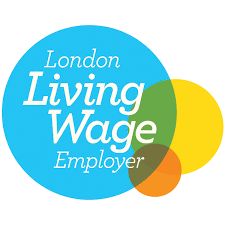Fair Finance : fair and responsible loans.
Another year, another lockdown. As the UK continues to battle the Covid-19 virus, many of us are facing an increasing financial struggle as a result.
We are all hoping the combination of ongoing restrictions and the rollout of the vaccination programme will bring Covid-19 under control. But what can we do to rescue our finances during these difficult times?
In this article we take a look at some different sources of financial assistance which may be able to help you. We will look at what is available for each of the following circumstances:
- If you are struggling to pay your mortgage and bills
- If you have lost your job
- If you are on furlough
- If you are self-employed
- If your small business has been closed during lockdown
- If you are unable to work due to Covid-related illness
If you are struggling to pay your mortgage and bills
Whatever your circumstances, you may be in the position where you are struggling to pay some of your major bills during this time. If this is the case then the best thing to do is to contact your lender to see if some arrangement can be made.
Mortgages
Mortgage lenders are able to offer most borrowers a full or partial payment holiday of up to six months. The payment holiday means you can either make partial payments or stop paying altogether. Either way, you will still be charged interest on your mortgage during the payment holiday so will need to repay this later.
If you have not already had a mortgage payment holiday you can request one up to 31st March. If your lender agrees, you will usually be given a mortgage payment holiday of three months which could potentially then be extended further. The mortgage payment holiday scheme is currently due to end by 31 July 2021.
If you have had a six month payment holiday and your financial difficulties continue beyond this period of time then your mortgage lender may be able to offer you tailored support, geared towards your specific financial circumstances. This may include measures such as deferred or reduced payments, an extended mortgage term or a different type of mortgage.
There is no adverse effect on your credit score from taking a payment holiday, but other lenders will be able to see from your payment history that there has been a gap in your mortgage payments. This could potentially lead to some lenders negatively assessing you if you have taken a payment holiday. Also, if you do need tailored support, as mentioned above, this will show on your credit report.
Fortunately, lenders such as Fair Finance will look beyond this and consider your overall circumstances when you apply for a personal loan with us.
Bills
As well as mortgages, the FCA (Financial Conduct Authority) has also confirmed that help - such as payment holidays - will be available until 31st March with payments for other loans and also credit cards. So it is definitely worth contacting your lender if you are having difficulties making regular payments due to the financial impact of Covid-19.
You should also contact your provider if you are struggling to pay any of your essential bills. Let them know what is happening, and discuss whether some alternative payment plan can be arranged. It is far better to do this, and keep in touch with them, rather than just stopping your payments and letting debt continue to build.
If you have lost your job
Redundancy pay
If you have lost your job, or are in the process of being made redundant because of Covid-19, you need to understand your rights. We explain these more fully in our recent article What to do if you’ve been made redundant.
You will be entitled to statutory redundancy pay and you can use this calculator on the Gov UK website to help you work out how much statutory redundancy pay you are entitled to. You may also be entitled to contractual redundancy pay from your employer.
Even if the company you were working for has closed down you should still be able to claim any money owed to you. The administrator handling the closure should get in touch with you to sort this out.
Benefits
As well as your redundancy pay, there are various benefits available to provide financial assistance until you are able to find another job.
The two main benefits to start looking into are JSA (New Style Jobseeker’s Allowance) and Universal Credit.
It would also be worth checking with an online benefits calculator to see what else you may be entitled to. Three benefits calculators recommended on the Gov UK website are:
If you are on furlough
The government Coronavirus Job Retention Scheme is designed to pay some of the wages of people who are on furlough, either because their workplace is closed or there is no longer enough work for them to do.
The furlough scheme can also be used to support clinically extremely vulnerable people who are unable to work safely, as well as people who have caring responsibilities due to coronavirus. This includes parents looking after children.
You are eligible to be furloughed on any type of contract, as long as you were on your employer's payroll before 30th October 2020. You will receive up to 80% of your normal salary, up to a maximum of £2,500 a month. Your employer may decide to make up the rest of your salary. You will still continue to pay income tax and national insurance contributions while on furlough.
The Job Retention Scheme enables you to work for your employer part of the time, and be furloughed for the rest. Whilst on furlough, you can take on other work, training or volunteering, as long as this doesn't break the rules of your employment contract.
If you are self-employed
Since the first lockdown started in March 2020, the Self-Employment Income Support Scheme (SEISS) has been in operation to help the self-employed. The third SEISS grant, announced in November, aims to support those self-employed people whose profits have been affected by coronavirus between 1 November 2020 and 29 January 2021.
The grant will pay up to 80% of your average 3-monthly trading profits, up to a total of £7,500.
To be eligible for the third grant you must be either a self-employed individual or member of a partnership and have traded in both of the tax years 2018-2019 and 2019-2020. You must intend to continue trading.
If you receive an SEISS grant this will not need to be repaid, but it will be subject to both Income Tax and self-employed National Insurance, and must be reported as income on your 2020-2021 Self Assessment tax return.
You can find out more about SEISS on the Gov UK website. If you are not eligible for SEISS, you may be able to claim Universal Credit.
If your small business has been closed during lockdown
There are various means of support for you if you are in this position. These include lockdown grants, Job Retention Scheme, and deferred payments on some business expenses.
- Lockdown grants
- Job retention scheme
Lockdown grants
If you run your own business in the retail, hospitality and leisure sector, and have been legally required to close during lockdown, you are eligible for a one-off top up grant. The amount of the grant varies from £4,000-9,000 depending on the rateable value of your business.
There is also a new discretionary fund available to support other impacted businesses.
You can apply for a lockdown grant through your local authority.
Job Retention Scheme
The Job Retention Scheme has now been extended until 30th April. If you employ staff and cannot use them during lockdown, you still have the option to furlough them for either all or part of the time. You will need to have had a PAYE payroll scheme in place on or before 30 October 2020, and can only claim for furloughed employees who were employed and on payroll on 30 October 2020. The state will pay 80% of the employee’s salaries, but you will need to cover pension and National Insurance contributions.
You can find out more about how to apply for the Job Retention Scheme on the Gov UK website.
If you are unable to work due to Covid-related illness
If you are employed but cannot work - or are shielding or self- isolating - because of COVID-19, you are eligible for SSP - Statutory Sick Pay. This is £95.85 per week and is paid for up to 28 weeks.
If you are employed, your employer must pay you SSP unless they have their own sick pay scheme. You’re still entitled to SSP if you work part-time or on a fixed-term contract.
If you are self-employed or are not working, you are not eligible for SSP. If you become ill with COVID-19 or are advised to self-isolate, you may be eligible for Universal Credit and/or New Style Employment and Support Allowance.
We hope the information above helps you understand what different types of financial help may be available to you during Covid-19.
Check back here soon for more financial and lifestyle tips from Fair Finance.




